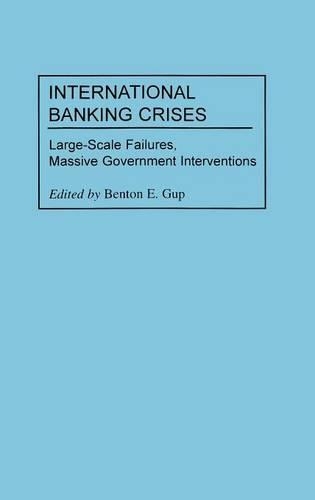
International Banking Crises: Large-Scale Failures, Massive Government Interventions
(Hardback)
Publishing Details
International Banking Crises: Large-Scale Failures, Massive Government Interventions
By (Author) Benton E. Gup
Bloomsbury Publishing PLC
Praeger Publishers Inc
30th October 1999
United States
Classifications
Tertiary Education
Non Fiction
International economics
International relations
332.15
Physical Properties
Hardback
304
Description
In July 1997 Thailand devalued its currency. This one event sparked financial crises that spread with astonishing speed from Southeast Asia around the world to Russia. Even in the United States and South America the impact was felt. Southeast Asia had been considered a model - in fact a miracle - of economic growth. No one foresaw the crises that soon occurred there, and the severity and contagion of these crises raised questions globally: what happened why and what can we do about it Gup and his contributors offer some answers to these critical questions. Gup and his panel finally conclude that government actions were at the roots of these crises. Banks were pawns in the hands of governments, and banks helped fuel the booms that ultimately burst, booms supported by investments from other countries around the world, not incidentally. Gup goes on to lay out other questions, among them: how effective are bank regulations and how do we resolve failed and insolvent banks
Author Bio
BENTON E. GUP holds the Chair of Banking at the University of Alabama and has held similar chairs at the University of Tulsa and the University of Virginia. Author of more than 18 books and 90 journal articles, he also serves as a consultant to government and industry. Dr. Gup's most recent book for Quroum is Bank Failures in the Major Trading Countries of the World: Causes and Remedies, (1998).
